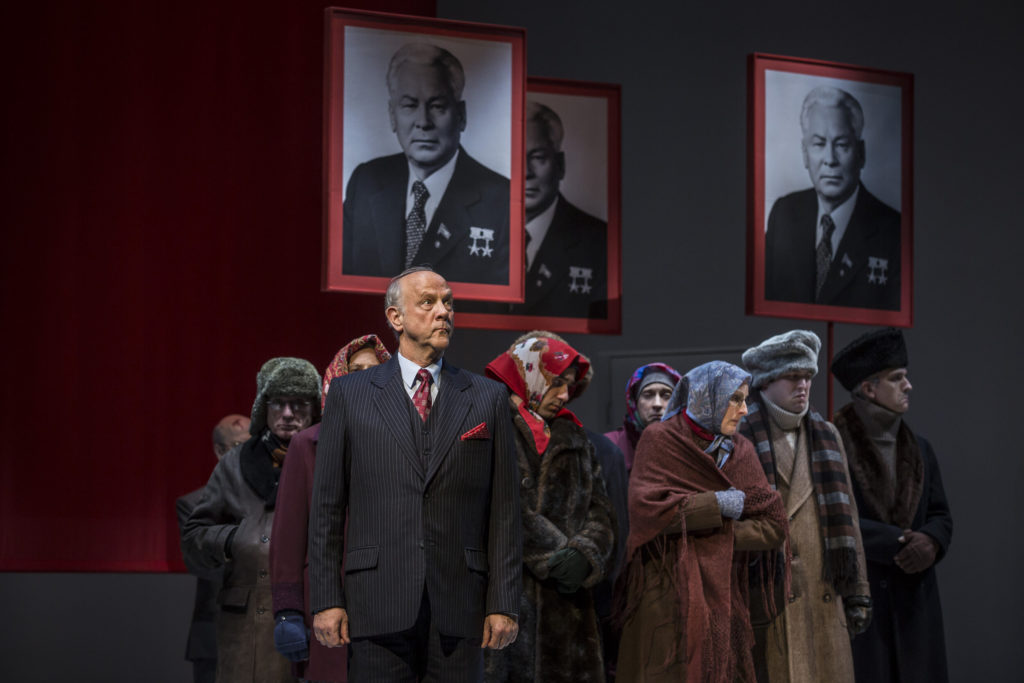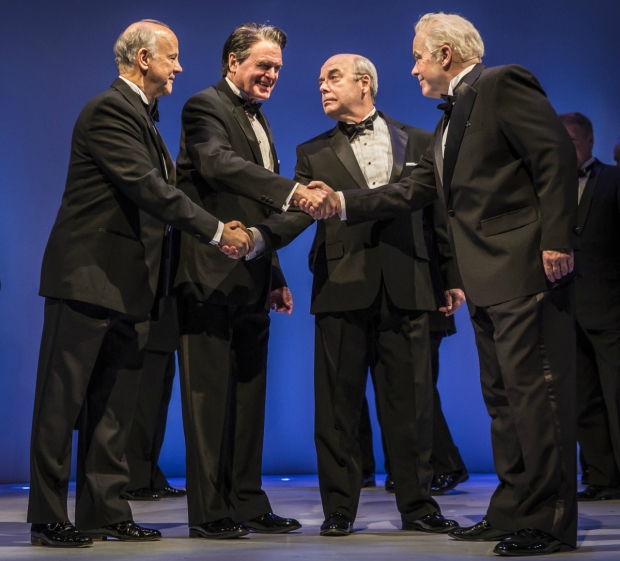
Biography
Rogelio Martinez is an award-winning and nationally recognized Cuban-American playwright. After leaving Cuba during the Mariel boatlift of 1980, Martinez quickly established himself in the United States as a unique voice in the American theater. Some of Martinez’s most notable plays include BLIND DATE (2018), BORN IN EAST BERLIN (2020), PING PONG (2015), WHEN TANG MET LAIKA (2010), ALL EYES AND EARS (2008), LEARNING CURVE (2005), and ARRIVALS AND DEPARTURES (2009). Martinez’s works have been developed and produced at renowned theaters across the country such as the Goodman Theater, the San Francisco Playhouse, the Public Theater, and the Arden Theater. Martinez was awarded the prestigious Guggenheim Fellowship in 2017, as well as the Princess Grace Award and the James Hammerstein Award. Martinez is known for his interest in the Cold War period, and several of his most recent plays comprise his “Cold War Cycle.” Martinez also serves as a mentor to emerging playwrights, is an arts education activist, and teaches playwriting at Columbia University and New York University. Recently, he has been writing a new play about Elian Gonzalez for Miami New Drama that is set to premiere in the Fall of 2022.
Career Highlight
In 2017, Martinez received the John Simon Guggenheim Fellowship in Drama and Performance Art. This coveted fellowship provides generous grants to exceptional scholars and creatives in the arts to help them develop new works. Through the Guggenheim Fellowship, Martinez was able to travel back to Cuba for the first time since leaving as a child in 1980 to conduct research for Cold War-era plays, building upon his “Cold War Cycle.” The plays in this cycle include Ping Pong, which is about American diplomacy in China under the Nixon administration, Born in East Berlin, a play about Bruce Springsteen’s Berlin concert before the collapse of the Berlin Wall, and Blind Date, which explores the Geneva Summit of 1985.
Blind Date
- Genre: Drama
- Breakdown:
- 11M Caucasian, 2W Caucasian
- Synopsis:
- Blind Date tells the dramatic story of the Geneva Summit of 1985, the first diplomatic meeting between President Ronald Reagan and Soviet President Mikhail Gorbachev. During the early years of the Reagan administration, Secretary of State George Schultz negotiates with Soviet official Eduard Shevardnadze to arrange a meeting between the two world leaders in hopes of easing rising Cold War tensions and slowing the ongoing arms race. After much strategic diplomatic bargaining, Reagan and Gorbachev later agree to meet face to face for the first time in Geneva. At the summit, the leaders are met with an onslaught of journalists and press coverage, yet they decide to speak with each other one on one largely out of public view. Meanwhile, their wives, Nancy Reagan and Raisa Gorbachev, engage in a kind of diplomacy of their own, meeting each other over tea. Although the summit does not produce groundbreaking agreements, it serves as a watershed moment in Cold War history when the two leaders were able to present an image of good will between the United States and the Soviet Union.
- Development/Production History:
- 2018: World Premiere at the Goodman Theater.
- Weblink to purchase from publisher:
- Photos:



- Plays
- Learning Curve (2005)
- Displaced (2006)
- All Eyes and Ears (2008)
- Illuminating Veronica (2009)
- Arrivals and Departures (2009)
- When Tang Met Laika (2010)
- Ping Pong (2015)
- Blind Date (2018)
- Born in East Berlin (2020)
- Bibliography
- Jones, Chris. “‘Blind Date’ is an intriguing look at the Reagan era with Deanna Dunagan as a perfect Nancy.” The Chicago Tribune, 30 Jan. 2018. https://www.chicagotribune.com/entertainment/theater/ct-ent-blind-date-review-0131-story.html
- Lee, Adelaide. “Blind Date: Ronald Reagan goes face-to-face with Mikhail Gorbachev in Rogelio Martinez’s new play at the Goodman Theatre.” Theatermania, 2 Feb. 2018. https://www.theatermania.com/chicago-theater/reviews/blind-date-goodman-theatre_83930.html
- Jones, Chris. “What was it about the ‘80s? ‘Blind Date’ is about Reagan meeting Gorbachev.” The Chicago Tribune, 25 Jan. 2018. https://www.chicagotribune.com/entertainment/theater/ct-ott-martinez-blind-date-goodman-0126-story.html
- Wilson, Emily. “Springsteen meets surveillance state in ‘Born in East Berlin.’” 48 Hills, 10 Feb. 2020. https://48hills.org/2020/02/springsteen-born-in-east-berlin/
- Web Resources
Reflection on Contribution to Anti-Racist Theatre
Some of Rogelio Martinez’s plays directly explore the experiences of Cubans and Cuban exiles in the United States. Namely, in They Still Mambo in Havana, Martinez tells the story of Cuban exiles from Miami and New York who travel back to Cuba after a woman was killed by the waterfront of Havana. Additionally, Arrivals and Departures chronicles the experiences of two Cuban brothers who must navigate the challenges of telling their family’s story. Plays like these demonstrate how Martinez sheds light on the Cuban and Cuban American experiences in direct ways through his playwriting.
However, many of Rogelio Martinez’s plays do not directly or overtly explore the Cuban experience. Yet, his work might be thought of as anti-racist theatre in other ways. As a Cuban American, Martinez often writes Cold War plays from a unique and often overlooked perspective. Martinez is a self-proclaimed child of the Cold War. During his childhood, Cuba was closely aligned with the Soviet Union. After emigrating from Cuba in 1980 during the Mariel Boatlift, Martinez undoubtedly gained a special perspective on U.S.-Cuba-Russian relations and American foreign policy that he is now applying to his playwriting. For example, Blind Date is essentially the telling of the Geneva Summit from the perspective of a Cuban American. The extent to which Martinez applies his personal experience as a Cuban American to his plays about Russian and U.S. Anglo politicians can be thought of as anti-racist because these plays are told from a cultural perspective that has not been historically dominant. Although the American and Russian perspectives have largely dominated popular discourse about the Cold War, Martinez’s plays serve as an important step towards leveling the playing field in the American theatre for experiences that have been underrepresented. By sharing his unique perspective on U.S.-Russian relations as a Cuban American, Martinez is able to provide greater equity and representation of ideas in the American theatre.
Compiled by Brigid Harrington, Political Science and Film, Television, & Theater, 2022